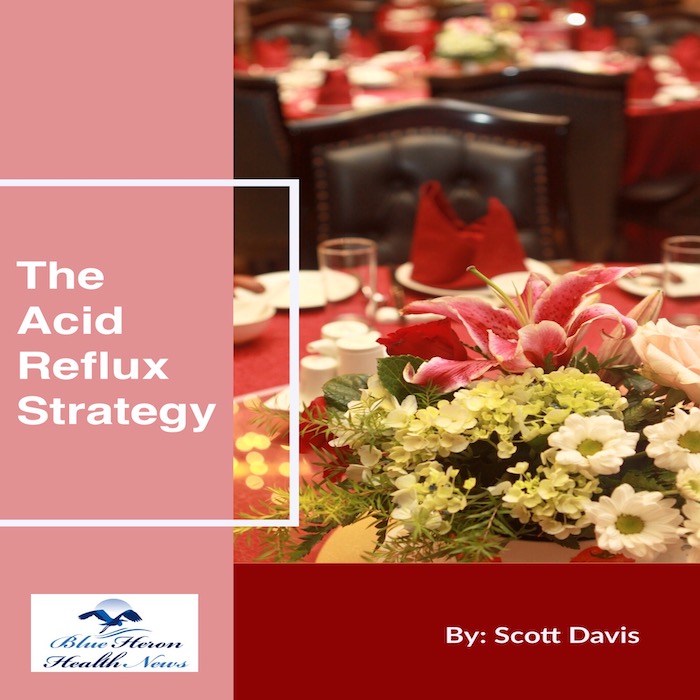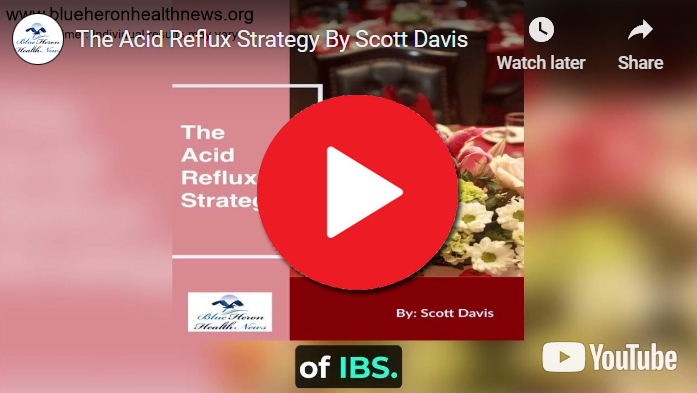
Acid Reflux Strategy™ By Scott Davis According to this eBook, you can start removing the symptoms of acid reflux and other similar problems just by making some changes in your diet, levels of stress, and lifestyle. It will guide you on how to change from the combination of food items to the sleep positions to relieve your problems. It also includes a list of food items you should focus on while shopping for it to find a natural treatment for your symptoms.
How can stress contribute to acid reflux?
Stress can contribute to acid reflux, also known as gastroesophageal reflux disease (GERD), in several ways. While stress itself doesn’t cause GERD, it can exacerbate symptoms and make the condition more difficult to manage. Here are the key ways in which stress can impact acid reflux:
1. Increased Production of Stomach Acid
Stress can stimulate the production of stomach acid. This occurs because stress triggers the body’s “fight or flight” response, releasing hormones such as adrenaline and cortisol. These hormones can increase gastric acid secretion, which may lead to a greater likelihood of acid reflux as the stomach becomes more acidic.
2. Relaxation of the Lower Esophageal Sphincter (LES)
The lower esophageal sphincter (LES) is a muscle that acts as a valve between the esophagus and the stomach, preventing stomach contents from flowing back into the esophagus. Stress can cause the LES to relax more frequently or become less effective at keeping the stomach contents in place. This relaxation can increase the incidence of acid reflux episodes.
3. Changes in Digestion and Gastrointestinal Motility
Stress can affect the motility of the gastrointestinal tract, slowing down the process of digestion. This slower movement of food can lead to delayed gastric emptying, which increases the pressure in the stomach and makes it more likely for acid to reflux into the esophagus. Additionally, stress can cause spasms in the esophagus, exacerbating symptoms.
4. Behavioral Responses to Stress
Stress often leads to behavioral changes that can exacerbate acid reflux symptoms. These behaviors include:
- Poor Eating Habits: Stress can lead to changes in eating behaviors, such as overeating, eating too quickly, or choosing comfort foods that are high in fat and sugar. These dietary choices can increase the risk of acid reflux.
- Increased Consumption of Caffeine and Alcohol: People may consume more caffeine and alcohol when stressed, both of which can relax the LES and increase stomach acid production, contributing to acid reflux.
- Smoking: Stress may lead some individuals to smoke more, which can also relax the LES and irritate the esophagus, worsening GERD symptoms.
5. Heightened Perception of Pain
Stress can increase the perception of pain and discomfort, making the symptoms of acid reflux feel more severe. This heightened sensitivity is due to the central nervous system’s response to stress, which can amplify sensations such as heartburn and chest pain.
6. Impact on Sleep
Stress can interfere with sleep patterns, leading to poor sleep quality or insomnia. Lack of sleep and disrupted sleep can exacerbate GERD symptoms, as lying down can make it easier for stomach acid to flow back into the esophagus. Furthermore, sleep deprivation can reduce pain tolerance, making GERD symptoms more noticeable.
7. Effects on Immune Function and Inflammation
Chronic stress can weaken the immune system, leading to increased inflammation in the body, including the gastrointestinal tract. This inflammation can exacerbate GERD symptoms and contribute to complications such as esophagitis.
Managing Stress to Reduce Acid Reflux Symptoms
Managing stress is an important aspect of controlling acid reflux symptoms. Here are some strategies that may help:
- Relaxation Techniques: Techniques such as deep breathing exercises, meditation, yoga, and progressive muscle relaxation can help reduce stress and its impact on the digestive system.
- Regular Physical Activity: Exercise can help reduce stress, improve digestion, and promote overall health. However, it’s important to avoid vigorous exercise immediately after eating, as this can exacerbate reflux symptoms.
- Healthy Eating Habits: Adopting healthy eating habits, such as eating smaller meals, avoiding trigger foods, and not eating right before bed, can help manage GERD symptoms.
- Mindful Eating: Practicing mindful eating, which involves eating slowly, savoring each bite, and paying attention to hunger and fullness cues, can reduce overeating and improve digestion.
- Adequate Sleep: Ensuring adequate sleep can help manage stress and reduce the severity of GERD symptoms. Elevating the head of the bed can also help prevent nighttime reflux.
- Seeking Professional Help: For those struggling with chronic stress, anxiety, or depression, seeking support from a mental health professional can be beneficial. Cognitive-behavioral therapy (CBT) and other therapeutic approaches can help manage stress and improve coping mechanisms.
Stress can contribute to acid reflux by increasing stomach acid production, relaxing the LES, altering gastrointestinal motility, and influencing behaviors that exacerbate GERD symptoms. Managing stress through lifestyle changes, relaxation techniques, and professional support can help reduce the frequency and severity of acid reflux symptoms. It’s important for individuals experiencing GERD symptoms to consult with a healthcare provider for a comprehensive treatment plan that addresses both physical and psychological factors.
Acid Reflux Strategy™ By Scott Davis According to this eBook, you can start removing the symptoms of acid reflux and other similar problems just by making some changes in your diet, levels of stress, and lifestyle. It will guide you on how to change from the combination of food items to the sleep positions to relieve your problems. It also includes a list of food items you should focus on while shopping for it to find a natural treatment for your symptoms.
